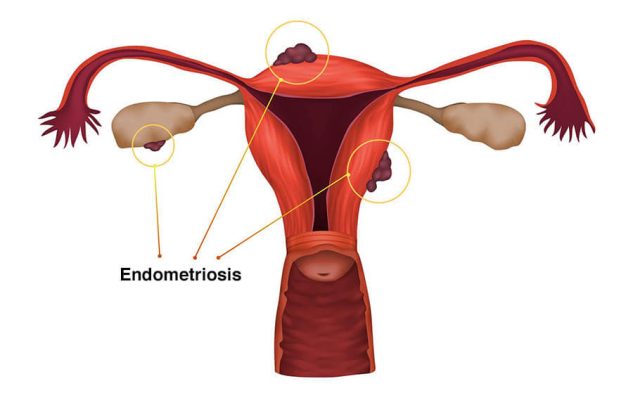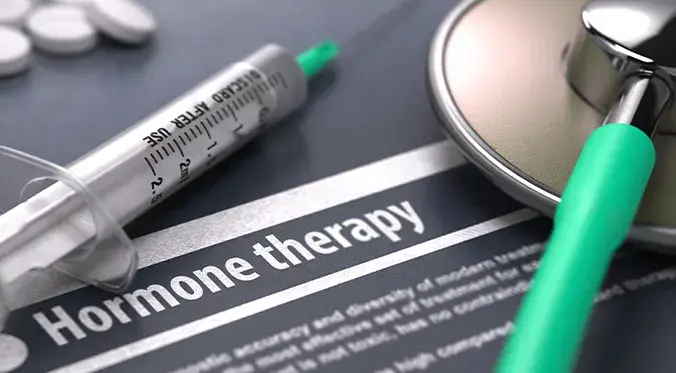Endometriosis: Treatment Options and Things to Consider
Many millions of women around the world suffer from endometriosis, a chronic disease. Despite being common, endometriosis is still frequently misdiagnosed and poorly understood.
An overview of endometriosis, including its causes, signs, symptoms, diagnosis, and available treatments, is provided in this article.
The effects of endometriosis on those who have it and the value of awareness and education will also be covered.
Table of contents
Understanding Endometriosis
When the endometrium, the tissue that borders the uterus, grows outside of it, endometriosis develops. Scarring, discomfort, and inflammation may result from this. Endometriosis’s exact causes are unknown, however several elements like hormonal imbalances, genetics, and immune system issues may play a role in how it manifests.

Endometriosis symptoms might include pelvic pain, painful periods, pain during sex, and infertility. These symptoms can vary from person to person. Medical history, physical examination, and imaging tests like ultrasounds and MRIs are frequently used to make diagnoses.
A laparoscopy, a minimally invasive surgical procedure, could be required in specific circumstances to verify a diagnosis.
The severity of endometriosis is divided into four stages, with stage 1 being the least severe. Some women with moderate problem may endure substantial pain and infertility, and the stage of endometriosis does not always correlate with the intensity of symptoms.
Management and Treatment Options for Endometriosis
There are various types of health issue management and treatment options, including as pain control, hormone therapy, surgical procedures, and complementary and alternative therapies.
The intensity of the symptoms, the degree of this, the patient’s general health, and personal preferences will all influence the treatment option. The available choices are listed in the following table:
| Treatment Option | Description | Benefits | Potential Side Effects |
| Pain management | Over-the-counter pain medications, prescription pain medications, and nerve block injections | Provides relief from pain | Can cause side effects such as nausea, dizziness, and constipation |
| Hormonal therapy | Birth control pills, hormone injections, and other medications that help to regulate hormones and control the growth of endometrial tissue | Can alleviate symptoms and slow the progression of endometriosis | Can cause side effects such as weight gain, mood changes, and decreased libido |
| Surgical interventions | Laparoscopic surgery to remove endometrial tissue and adhesions, or hysterectomy to remove the uterus | Can provide long-term relief from symptoms and improve fertility | Can cause surgical complications and infertility |
| Complementary and alternative therapies | Acupuncture, dietary changes, herbal supplements, and other therapies that may help to alleviate symptoms | Can provide relief from symptoms and improve overall health | May not be supported by scientific evidence and can interact with other medications |
Pain Management

Endometriosis management includes pain control because it can enhance quality of life and increase the efficacy of other therapies. For mild to moderate pain, over-the-counter pain relievers like ibuprofen and acetaminophen can be beneficial; but, for more severe pain, a prescription pain reliever may be required.
Anesthesia is injected into the nerves that carry pain signals from the pelvic region during nerve block injections, which can help reduce discomfort.
Hormonal Therapy

Another popular kind of endometriosis treatment is hormonal therapy. Birth control tablets can be useful for treating symptoms since they contain hormones that control menstruation and slow the growth of endometrial tissue.
Other hormonal treatments, like as hormone implants or injections, can also be used to reduce symptoms and limit endometrial tissue growth.
Surgical Interventions

Some endometriosis sufferers may require surgical procedures, particularly those with severe symptoms or reproductive problems. Endometrial tissue and adhesions can be removed using laparoscopic surgery, which entails making small incisions in the abdomen and using a camera to view the pelvic region.
In some circumstances, a hysterectomy may be required to remove the uterus and offer long-term symptom relief.
However, surgery should only be considered as a last resort after all other treatment options have failed because it entails the risk of both infertility and surgical complications.
Complementary and Alternative Therapies

For some women with endometriosis, complementary and alternative therapy like acupuncture, dietary modifications, and herbal supplements may also be helpful.
These treatments can help with symptom relief and general health improvement, but it’s important to remember that they may not be backed by scientific research and that they may interact with other medications.
Before experimenting with any new treatments, it’s crucial to speak with a healthcare professional.
Other Considerations
There are more factors to take into account when managing endometriosis in addition to the aforementioned treatment options.
For instance, some women might gain from adopting a nutritious diet, frequent exercise, and stress management skills.
Endometriosis can produce scarring and adhesions that can prevent conception, so for women who have the disorder, their fertility may also be a problem. Some endometriosis patients who are attempting to get pregnant may need fertility treatments like in vitro fertilization (IVF).
Living With Endometriosis
It can be difficult to live with this problem, both physically and psychologically. Endometriosis has an emotional impact that can be managed with coping methods like yoga, meditation, and talk therapy.
People with endometriosis might find a sense of community and understanding through support groups and internet networks. In order to increase public understanding of endometriosis, motivate research, and secure money for improved treatments and a potential cure, advocacy and awareness activities are also crucial.
Youtube Video – Living With Endometriosis
Are Endometriosis and Fibroids Related?
Endometriosis and fibroids are two conditions that affect a womans system. However they often get mistaken, for each other because they share some symptoms. Endometriosis occurs when tissue similar to the lining of the uterus grows outside of it causing pain and potentially impacting fertility.
On the hand fibroids are cancerous tumors that grow within the walls of the uterus. Although these conditions are not directly linked they can. Have symptoms such as pelvic pain, heavy menstrual bleeding and discomfort during sexual intercourse.
It is important to diagnose them and create customized treatment plans since their treatments and effects, on fertility and menstrual cycles differ.
Are Endometriosis Pregnancies High Risk?
Pregnancies, in women who have endometriosis are often considered to be at a risk. This condition can impact fertility. Increase the chances of complications during pregnancy.
Women with endometriosis face a risk of preterm labor, miscarriage and placenta previa. Furthermore the hormonal changes that occur during pregnancy can also affect the symptoms associated with endometriosis.
It is vital for women with endometriosis to receive monitoring and care, from healthcare professionals in order to effectively manage these risks. Early detection and treatment of endometriosis can lead to outcomes during pregnancy emphasizing the importance of guidance.
Final Thought
Finally, it should be noted that endometriosis is a chronic ailment that affects a lot of women and can be quite painful and disruptive to their life.
Women should be aware of the signs and symptoms of endometriosis and seek medical help if they think they may have the condition. Early detection and treatment can aid in symptom management and enhance quality of life.
To increase awareness and treatment options for endometriosis, ongoing research and advocacy initiatives are required.
You May Also Like
- Buccal Fat Removal – What You Need to Know. Visit now.
- Click for more health content.
- Learn more with wikipedia document. Click here for read.
FAQ
Although endometriosis symptoms might differ from person to person, some typical ones include painful periods, sex-related pain, and chronic pelvic pain.
Endometriosis’s specific cause is unknown, however it is thought to be a combination of factors including hormone imbalances, genetics, and immune system problems.
When uterine lining-like tissue protrudes from the body outside of the uterus, endometriosis results. Scarring, discomfort, and inflammation may result from this. It may also cause issues with conception in certain women.
Although there are many typical endometriosis symptoms, painful periods and sex discomfort are two of the more prevalent ones.
Endometriosis does not yet have a cure, however there are numerous therapeutic options to control symptoms and enhance quality of life. Endometriosis can occasionally go better on its own or with medication, but it can also be a chronic condition that needs continuing care.





